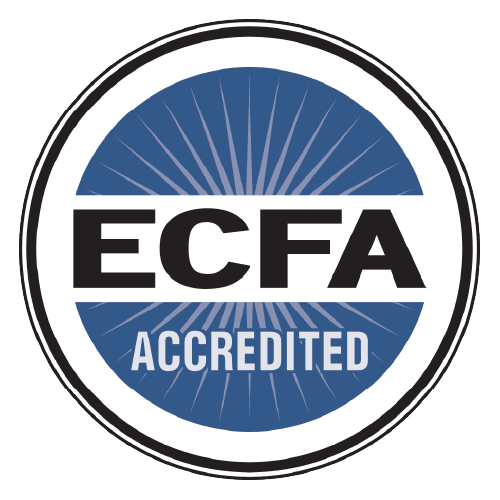
Written by Brandon Bahr
We have all heard the term ROI (Return on Investment). But as Christ-followers, what if we changed the meaning behind the acronym in our faith walk? Instead of Return on Investment, what if we thought of it as the Rescuing of Image Bearers? I recently attended a conference where former Heisman Trophy winner Tim Tebow shared this idea. He stated that as a Christian, “Now that you’ve been rescued, you’re on the rescue team.” That statement is loaded! What if we truly functioned as though we were on a rescue team? How much more of a Kingdom impact might we have if we actually lived like that?
In Mark’s gospel (Mark 2:1-12), we see the story of a paralytic man desperate to reach Jesus. Because of his condition and the massive crowd surrounding the house where Jesus was teaching, his friends removed part of the roof and lowered him down to Jesus, where he was healed.
I often reflect on this passage when I think about our work at Ashes to Glory Foundation, helping those enslaved by trauma and addiction access the quality care they desperately need. Amid the struggle, those suffering often cannot hear the Gospel clearly because addiction and life’s hurts create barriers that cloud their thinking. This is where we, as the Church, need to take on the urgency of a rescue team, just like the friends of the paralytic, to help remove those barriers.
How Should We Respond?
Here are three tangible ways we can start to have a greater ROI (Rescuing of Image Bearers).
- Acknowledge the Problem on Our Doorstep
The first step in solving a problem is recognizing it exists. If we are honest with ourselves, we often think of addiction as an issue affecting only non-Christians. But that is a myth. Below are just a few staggering statistics:
- 29% of all U.S. families (1 in 4) have someone impacted by addiction.
- Drug overdoses are among the leading causes of death among Americans under 50
- 69% of American men and 40% of American women (3 in 5 adults total) report pornography consumption.
- Half of porn users say no one knows about their usage, with 84% stating they have no one helping them avoid it.
- 67% of U.S. pastors have a personal history of pornography use, with nearly one in five (18%) currently struggling with it.
- Only 10% of U.S. Christians say their church offers programs to help those struggling with pornography.
And it does not stop there. These are just the more “obvious” and less socially acceptable addictions. Many more socially accepted addictions, termed process addictions, include compulsions related to eating, work, sex, exercise, gambling, shopping, and technology. Any of these activities can become vices or taskmasters, functioning like chemical dependencies, and leading to highs, lows, cravings, escape, and withdrawal. In the Church, we often call these “idols.”
Church, let’s be honest. Addiction is not an “out there” issue. The question is not whether you will encounter someone struggling with addiction, but how will you respond when you do?
It is time we started fighting the battle at our doorstep, in our pews, and in our homes.
- Change the Narrative
Most of us have formed narratives in our heads surrounding addiction, many of which have little grounding from personal knowledge. We base them solely on what we’ve seen in the media or stereotypes. Studies have shown that Americans are more inclined to view addiction as a sign of moral failing than they are to view other mental disorders, such as bipolar disorder or schizophrenia. We view addiction as the problem, or worse yet, the individual as the problem.
Through my addiction journey and working with families, one truth has become clear: addiction is not the problem, but a symptom of a deeper issue. For a long time, I bought into the narrative myself. I thought addiction was mainly about bad choices and weak willpower. And if I’m honest, I believed that if someone just loved Jesus more, they’d get it together.
But then I walked through my own struggle. I know what it’s like to feel stuck. I know what it’s like to promise God, “Never again,” and then find myself back in the same place. I know what it’s like to sit in church and feel like a fraud. And in that moment, I didn’t need more shame. I needed honesty. I needed help. I needed people who weren’t afraid of my mess.
That experience changed how I view this this issue. On the surface, we see substance use, pornography, or compulsive behaviors. But those are often the best solutions people have found to soothe deep-rooted trauma. Many addicts have experienced childhood trauma such as physical, verbal, emotional, spiritual, or sexual abuse. I once heard a former heroin user say that heroin was not his problem, but simply the best solution he had found to numb the pain of his childhood trauma.
Yet, too often, Christian circles can be the most judgmental, viewing addiction only as a moral failing instead of a cry for help. The person sitting in church, hungover or smelling like smoke, makes us feel uncomfortable. And if you let others see your brokenness, you risk being labeled “too open.” We dislike faith which threatens the status quo. But threatening the status quo is partially what sent Jesus to the cross.
And if I’m honest, there have been moments when someone shared their struggle with me and my first reaction wasn’t compassion, but discomfort. I didn’t know what to say and part of me just wanted the conversation to end. But rescue teams don’t back up when things get uncomfortable.
In The Recovery-Minded Church: Loving and Ministering to People with Addiction, Jonathan Benz shares heartbreaking responses from a survey about the messages people received from the church, whether directly or indirectly. Here are just a few of their answers:
- Go to church more and you will do better. Pray more, tithe more, or read your Bible more.
- I am the chief of sinners and God would never love me.
- I am a horrible person because I cannot control my drinking.
- I have broken every commandment.
- You are doing this to yourself. It is your fault. If you really wanted to, you would stop.
These responses highlight a critical issue: many see the Church as a place of shame rather than grace and hope in Christ. While we should never condone sin, we must live in the tension between grace and truth. I love what Randy Alcorn states in The Grace and Truth Paradox:
"Truth without grace breeds self-righteous legalism that poisons the church and pushes the world away from Christ. Grace without truth breeds moral indifference and keeps people from seeing their need for Christ. Attempts to “soften” the gospel by minimizing truth keep people from Jesus. Attempts to “toughen” the gospel by minimizing grace keep people from Jesus. It is not enough for us to offer grace or truth. We must offer both."
Church, we do not need to be addiction experts, but we must begin acknowledging and openly discussing mental health. Instead of seeing those who struggle as a threat or an offense to the body of Christ, we must approach them with compassion, not condemnation. They are individuals in deep need of Jesus—just like you and I. And often, Jesus is calling us to be His hands and feet to help bring them closer to Him.
- Cultivate a Culture of Authenticity
In his book Messy Spirituality, Michael Yaconelli describes a harsh reality in many religious circles: an unwritten rule to pretend. Pretend that everything is fine, that we have it all together, that we never doubt God’s control, and that we definitely do not admit that we struggle with sin. I think most of us know exactly what that feels like.
However, Scripture is clear: God values truth and sincerity. Jesus modeled authenticity, meeting people where they were, from the woman at the well (John 4) to His disciples. He condemned hypocrisy (Matthew 23) and called us to worship in spirit and truth (John 4:24). Paul urged us to speak the truth in love (Ephesians 4:15) and to bear one another’s burdens (Galatians 6:2). Authenticity isn’t optional; it’s essential. A faith that is honest and rooted in grace reflects God’s heart and strengthens the church.
But despite the clear biblical call to authenticity, we are all human, and many of us struggle to be real, especially in the church. Fear of judgment, pride, shame, cultural expectations, and the pressure to appear “put together” keep us from sharing our struggles. Yet the Church should be a place where grace is greater than shame, where honesty is met with love, and where no struggle is too big to bring into the light.
Authenticity starts with leadership. When pastors and leaders model vulnerability, they create a culture where others feel safe enough to do the same. Addressing real-life issues like doubt, addiction, and mental health breaks down barriers and reminds us that God’s grace meets us where we are.
Authenticity is not about perfection. It’s about honesty, humility, and being real with God and one another.
When authenticity becomes the culture, lives are transformed. When people feel seen, known, and loved, they engage more deeply in the life of the church. Relationships deepen, creating space for iron to sharpen iron, and our witness to the world becomes more compelling, offering a powerful alternative to the loneliness and superficiality so common in society.
Most importantly, authenticity also fosters spiritual growth. When people are free to confess their struggles and seek support, they open themselves to the transformative work of the Holy Spirit. The church becomes a sanctuary where brokenness is met with grace, lives are continually renewed, and the sanctifying power of God shapes us into His image. When we live this way, we reflect the heart of God and become the kind of community that actually changes lives by pointing people to Jesus.
Conclusion
Church, we can no longer sit on the sidelines. We can’t keep avoiding what makes us uncomfortable. We must recognize that addiction and the effects of trauma are not only external issues but deeply rooted within our communities and congregations. By acknowledging the problem, changing the narrative, and fostering a culture of authenticity, we create a space where people feel seen and supported. As Christ-followers, we are called to act with compassion and urgency, just as the friends of the paralytic did, extending both grace and truth. By embracing our role in God’s rescue team, we start breaking down barriers to healing and ensure that those who struggle know they are loved. This is how we live the Gospel: not as spectators, but as participants.
Sources:
1. The Barna Group, The Porn Phenomenon: The Impact of Pornography in the Digital Age, https://www.barna.com/the-porn-phenomenon/
2. Substance Abuse and Mental Health Services Administration, https://www.samhsa.gov/
3. American Addiction Centers, https://americanaddictioncenters.org/
4. “Drug addiction viewed more negatively than mental illness, Johns Hopkins study shows,” HUB, Johns Hopkins University, October 1, 2014, http:hub.jhu.edu/2014/10/01/drug-addiction-stigma
5. Michael Yaconelli, Messy Spirituality
6. Randy Alcon, The Grace and Truth Paradox: Responding with Christlike Balance
7. Jonathan Benz, The Recovery Minded Church: Loving and Ministering to People with Addiction
Partner with Ashes to Glory Foundation
Learn how you can partner with Ashes to Glory Foundation to help families bridge the gap today.




